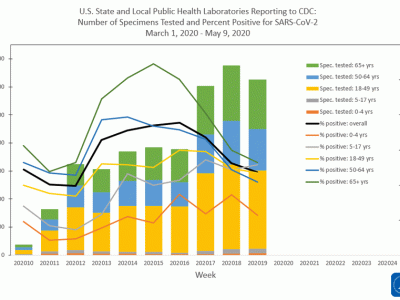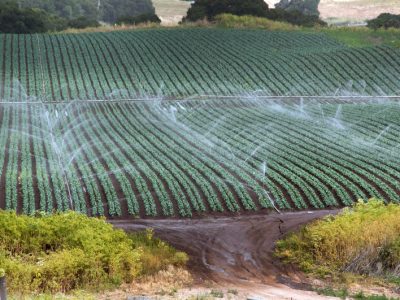Animal, vegetable or mineral?
A lesson in judicial humility and a thought experiment about property rights
This topic may be a bit far afield for this blog, but dinosaurs are always worth considering . . . The Montana Supreme Court has resolved an intriguing dispute about ownership of fossilized dinosaur remains that turned on the question of whether those remains were or were not "minerals." In the process, the Montana court provided an object lesson in judicial humility to a couple of Ninth Circuit judges. Mary Ann and Lige Murray own the surface estate, literally...
CONTINUE READINGNonstate Actors Could Help Govern Solar Geoengineering
Governments are not acting; maybe others could -- and should
Although reductions in greenhouse gas emissions continue to be inadequate to prevent dangerous climate change, solar geoengineering appears able to substantially reduce climate risks. More research, including outdoor experiments, is needed to reduce critical uncertainties. This could pose some environmental risks and -- arguably more importantly -- will raise diverse social concerns, such as research "sliding" into undue deployment. For these reasons, some additional gov...
CONTINUE READINGCoronavirus Tests and Their Limits
Eyeballing trends in the epidemic? Proceed with caution!
Many of us anxiously scan coronavirus statistics, looking at trends and cross-country comparisons. Warning: We need to be cautious in interpreting those numbers. There’s lots of noise in the data, meaning that it’s not always an accurate measure of what we want to know about the disease. Even death counts are not always reliable -- Florida has had about 1200 extra pneumonia deaths this year, which are probably undercounted coronavirus cases. I want to make this ...
CONTINUE READINGLemonade
Can the COVID Crisis Benefit Climate Response?
Former Obama chief of staff and Chicago Mayor Rahm Emmanuel has been cited quite a bit for this quote: You never let a serious crisis go to waste. And what I mean by that it's an opportunity to do things you think you could not do before. COVID-19 certainly meets the criteria of a serious crisis, and, as many have noted, it also presents some opportunities. The Trump Administration seems hell bent on using the crisis as cover to gut even more environmental regula...
CONTINUE READINGSuing Big Oil
Which court has jurisdiction? State court or federal?
Yesterday, the Ninth Circuit ruled in favor of the plaintiffs in two climate change cases brought against the oil industry. The court ruled on a narrow but important procedural issue: whether the cases should be sent back to state court. Cities and counties should now be able to continue with the cases, in which they want the industry to reimburse them for expenses relating to climate change. Even in state courts, they will have a lot of barriers to overcome, but at le...
CONTINUE READINGNinth Circuit Hands California Local Governments Big Climate Change Win
Local Governments' Climate Change Lawsuits Against Big Energy Belong in State Courts, Court of Appeals Rules
Today the U.S. Court of Appeals for the Ninth Circuit handed numerous California local governments a major win over major oil, gas and coal companies in several of the nation's most consequential set of climate change lawsuits. The Ninth Circuit did so in two separate opinions; County of San Mateo v. Chevron Corporation and City of Oakland v. BP PLC. The decisions were procedural rulings rather than substantive in nature. But they were nonetheless critically ...
CONTINUE READINGDay In/Day Out, Our Continuing Troubles
Some things are episodic. Others just go on and on. And on.
You might think a massive disease outbreak or skyrocketing unemployment would make our other troubles come to a halt or at least slow down. But no, not so much. Here are a dozen examples of things that refuse to stop, regardless of the day of the week, the presence of an epidemic, or a collapsing economy: Greenhouse Gases. Day in, day out, regardless of pandemics, wars, or national holidays, GHGs keep trapping heat. The most important GHG, CO2, can remain in th...
CONTINUE READINGWhat’s in a Name?
“Climate change”? “Disruption”? “Crisis”? “Emergency”? Why is this so hard?
We seem to have a lot of trouble in coming up with the right name for what’s happening to the world’s climate. We started with “Global Warming.” But that seemed too narrow, because the changes don’t just relate to temperature, and too innocuous, because warming seems like a gentle process. So scientists shifted to “Climate Change.” That’s accurate but doesn’t say much about what’s changing, in what direction, and why it might be a problem. More re...
CONTINUE READINGNetworks of Misinformation
How Anti-Public Health Messages and Activities Spread
Like a virus, misinformation can spread within a population. It has its super-spreaders, just like the coronavirus. It can mutate in ways that make it more contagious. And it can be weaponized. Research into networks of coronavirus-related communication has revealed how both true and false information spread through social media . Misinformation can spread like wildfire. Too often, antidotes to misinformation spread more slowly and only within subpopulations. The c...
CONTINUE READINGGuest Contributors Helen Kang and Deborah Sivas: California Should Lead the Nation in Controlling Agricultural Pollution
Protection of Drinking Water and Environmental Quality Demands Strong Action
Agricultural runoff is one of the largest sources of pollution in the nation’s waterways. In recent years, scientific journals and the media have been filled with reports of toxic algae blooms and dead zones near and far: The Everglades, Great Lakes, Gulf of Mexico, Chesapeake Bay, and San Francisco Bay-Delta. Agricultural pollution also threatens public health in communities that rely on tainted groundwater. In California alone, more than a quarter million residents i...
CONTINUE READING










